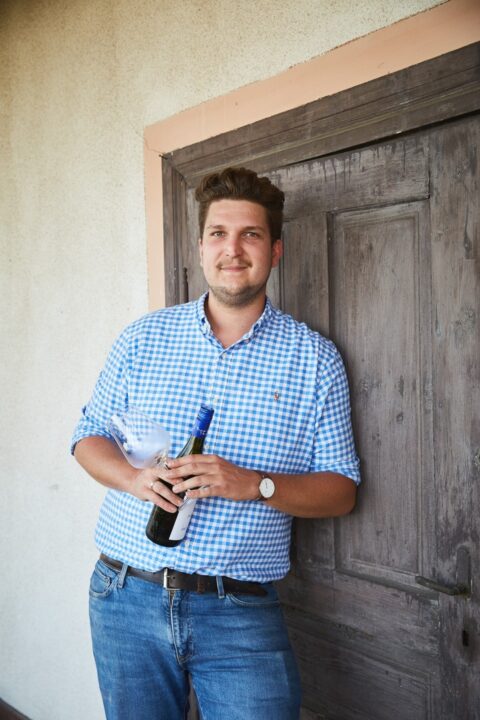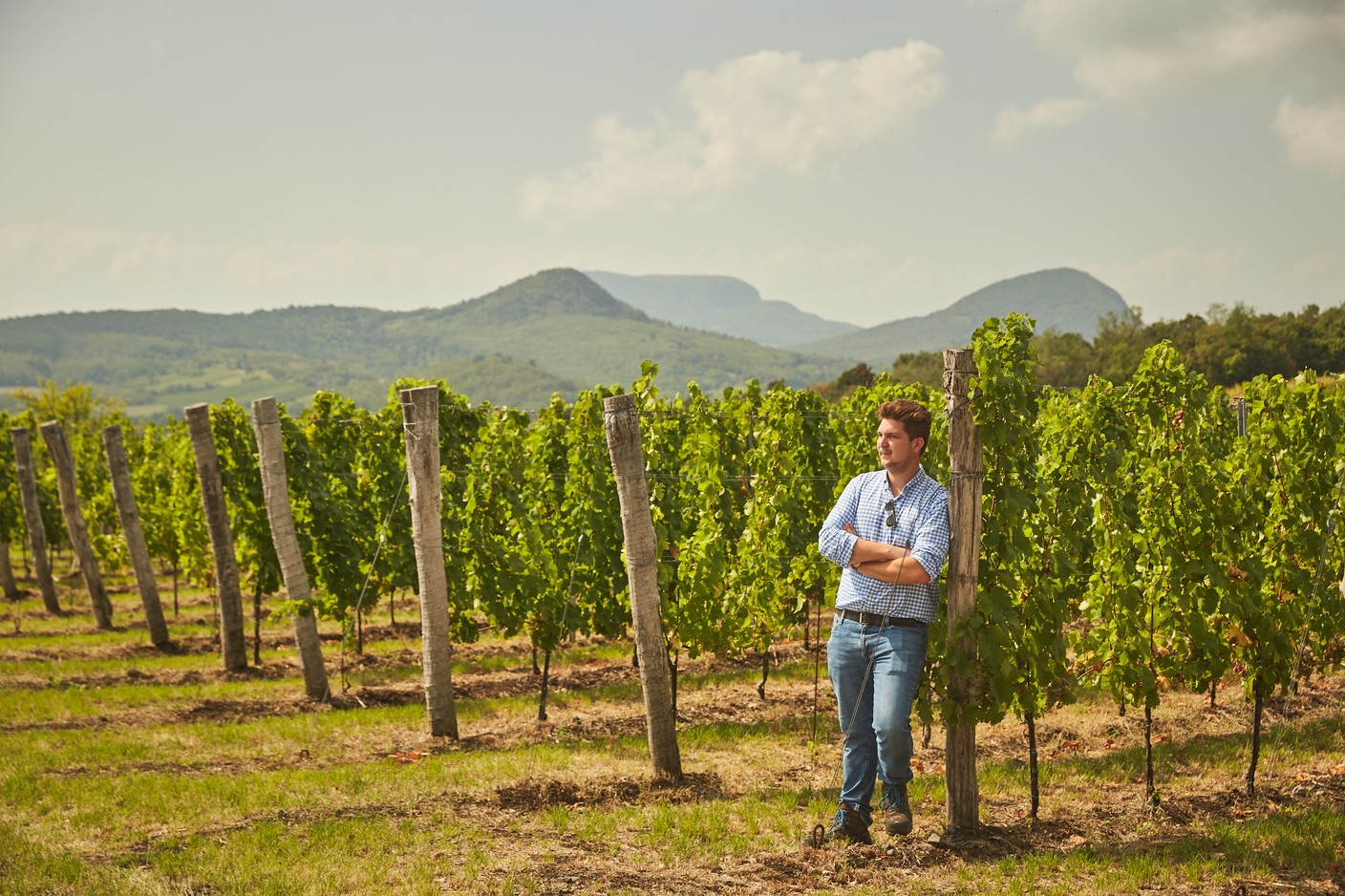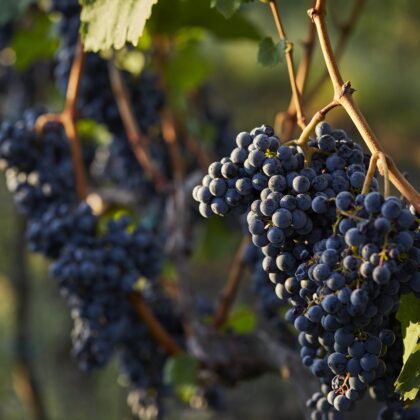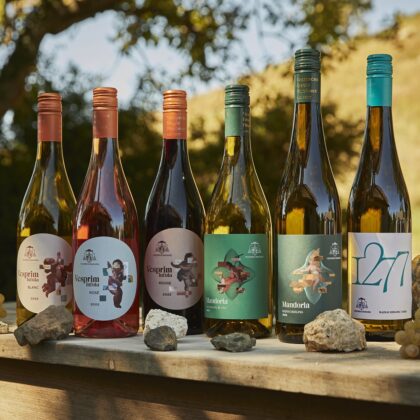Where did your interest in viticulture and oenology come from?
I was born into a Budapest family, both my parents were in the hospitality industry and we had our own restaurant. I worked alongside my mother in the family restaurant, besides which I gained experience in foreign restaurants and I also found places at several catering establishments here in Hungary. As restaurant owner, my father had many contacts with winemakers so I gained an insight into this world even as a child. During my years spent in the hospitality sector I truly came to appreciate that the pleasure that comes from a meal can be enhanced by an excellent wine. My mother showed me that if you can place a mouth-watering dish in front of someone, which on seeing and tasting gives them pleasure, then time stands still for them, they escape the everyday burdens of life. This is one of the greatest achievements of a cook. I wanted to pass on this feeling but this time through wines, so that is why I enrolled onto the University of Horticulture’s faculty of viticulture-oenology engineering.
Having graduated, how did your career continue?
While at university I grabbed every opportunity to gain experience in the fields of grape growing, winemaking and wine sales. This is how I came into contact with the winemaker of Gizella Winery in Tokaj. This work relationship also inspired the subject of my thesis. I was able to spend my official, main professional work experience at the Pannonhalma Abbey Winery in Pannonhalma. After this practice period I wanted to acquire experience abroad in the area of viticulture-oenology. In 2019 I travelled to New Zealand where I spent an entire harvest season on the Villa Maria estate. After this I continued my training in the same year in Austria, at the Esterhazy Winery, picking up experience. After returning home my path led me to Szent György Hill on the Balaton, in the summer of 2020. I think my love for Lake Balaton became even stronger during this period.
In 2021 I received a request to help the work of Veszprém Archdiocese Winery as head winemaker. This is an estate with a history of several centuries, being able to boast of legal continuity of no less than 750 years. The Mindszentkálla estate has been in the possession of Veszprém Archdiocese (earlier Veszprém Bishopric) for this entire time, which is a rarity, making it virtually unique in Hungary. For many, many years they made wine primarily for liturgical services, but for some time now they have been rethinking winemaking based on traditions but integrating new technology. The first results of this are evident: in 2022, our 2021 Sauvignon Blanc, and the 2021 Olaszrizling (Welschriesling or Italian Riesling) won gold at the wine competition organized by the National Council of Wine Communities.

What is the difference between oenology, making a really good wine, and preparing a tasty main dish?
When making wine, there are no second chances. Each year there is only a single opportunity to make something good, not like, for instance, when making a meal. In the case of cooking, if one day the dish is not as good as you wanted it to be, then you have a second chance to try again the following day. You can constantly obtain the raw ingredients and practice with them until you achieve perfection. Winemaking sets a greater challenge since you have just one shot each year. We put our heart and soul into the work and trust that, based on our best professional know-how, we can turn the year’s harvest into a wine that gives pleasure to consumers and is to the satisfaction of the winemaker.
What wines would Antal Benesch like to make?
The answer’s simple: delicious wines! I like clean, mineral, elegant, rich wines and I would like to make just such wines for our consumers as well. As regards wines, I feel a greater preference for the New World style. At the same time, my objective is to educate people as much as possible about the two Balaton wine regions where the two vineyards of the Veszprém Winery – Mindszentkálla and Felsőörs – are located. We still have so much to learn about the characteristics of both areas. The former has been with the Winery for the longest time. This estate was owned by the Chapter of Veszprém as early as the 13th century. In 1277, during an exchange of estates, it came under the control of the then bishopric and it still belongs to the archdiocese today. The white wines from here are characterized by a unique acid structure deriving from the rich volcanic soil, a salty mineral taste, fruitiness and silkiness. The reds are characterized by particularly fruity, verging on jam-like, sweetish flavours, while the nose is dominated by rich spiciness. The Felsőörs area came into the hands of Veszprém Archdiocese in the 20th century. The Archdiocese intends to oversee an entire renewal of both vineyards, as a consequence of which not only will the hectare area increase but we can also expect technological developments, too.
What do the next few months hold in store for the Winery?
2022 and 2023 are important dates in the life of both the Archdiocese and the Veszprém Archdiocese Winery. An investment of historical significance is ongoing in Veszprém, the centre of the Archdiocese: 18 buildings are being renovated at the same time. There hasn’t been a similar scale development in the castle district for 250 years. Parallel with this, the Archdiocese and the Winery have been rebranded. The image reflects traditional values while also appealing to a modern audience. We have further plans as well: the intention is to update our wine range with new names and, partly, new wines. Details of these developments will be coming shortly. The image and marketing preparations for these wines are largely complete – we are confident that we will be able to make the sort of wines that win the approval of consumers in terms of their taste, quality and appearance. 2023 is a vital year for Veszprém and the Balaton region; it will be the time of the European Capital of Culture programmes. We, too, want to be here, introducing ourselves, besides which we will be presenting – at ever more venues – the taste and values typified by Veszprém Archdiocese Winery.
Finally, an easy question: everyone needs rejuvenation, relaxation and inspiration. What do you draw on for these?
In terms of leisure and relaxation, I find it in travel, both in Hungary and abroad. My whole family loves discovering beautiful places and there are plenty of these here, but exploring new countries, sampling different cultures, literally through the traditional meals and drinks of the given people, well, this is not only my job but my passion as well. Now that I am no longer in the kitchen every day, yet the love of cooking has stayed with me and is a form of relaxation, I regularly cook at family get-togethers or when friends meet up.



